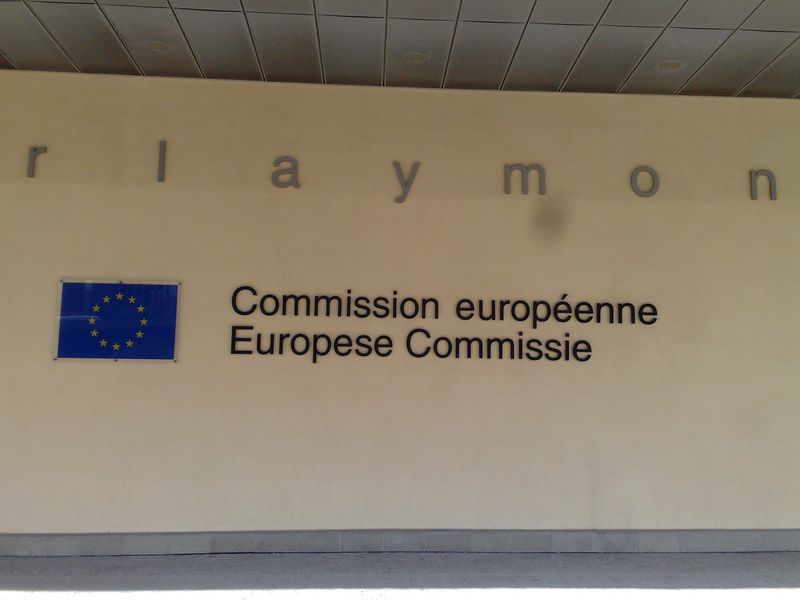The government is planning to spend the fiscal reserve?
Adelina Marini, Ralitsa Kovacheva, May 14, 2010
 On May 5th the government surprisingly announced that it is filing in Parliament a draft legislation, aimed at changing Budget 2010. Then, as euinside wrote, the news raised more questions than made this very important issue clearer. A week later the plans of the government continue to be covered by a thick fog. euinside has a draft document which was discussed at last week's session of the Council of Ministers but is still not filed in Parliament for approval. "We will file it in Parliament after this session - for an immediate update of the budget in order to ensure that aside from realising our priorities and promises and several social measures which we have committed to", Prime Minister Boyko Borissov said during the session. Below you will find the basic elements of the document of which we are fully aware that it is only a draft that can be changed by its official publication.
On May 5th the government surprisingly announced that it is filing in Parliament a draft legislation, aimed at changing Budget 2010. Then, as euinside wrote, the news raised more questions than made this very important issue clearer. A week later the plans of the government continue to be covered by a thick fog. euinside has a draft document which was discussed at last week's session of the Council of Ministers but is still not filed in Parliament for approval. "We will file it in Parliament after this session - for an immediate update of the budget in order to ensure that aside from realising our priorities and promises and several social measures which we have committed to", Prime Minister Boyko Borissov said during the session. Below you will find the basic elements of the document of which we are fully aware that it is only a draft that can be changed by its official publication.
The first thing that strikes after a careful reading of the draft is that the government intends to reduce the minimum of the fiscal reserve (the financial resources of a country, aimed at paying foreign debts and for help in hard times) from its current minimum of 6.3 bn levs (3.23 bn euro) to 4.5 bn levs (2.3 bn euro). Furthermore, currently paragraph 6 of Budget 2010 legislation states: "the minimum of the fiscal reserve for 2010 is 6.3 bn levs". In the draft however the following change is proposed: "In paragraph 6 the words "for 2010" are being replaced by "by December 31" and the number 6.3 is being replaced by 4.5".
This quite innocent (at a first glance) change of prepositions means something very dangerous - that the government is planning to spend even the entire reserve, hoping that "by December 31" somehow money will appear to keep the legal minimum of 4.5 bn levs. But if we take into account the statement of the Prime Minister that "we are not in a planning economy and if necessary we will make more updates of the budget", it is not impossible to expect another change in Budget 2010 and the reserve to be further reduced.
Aside from this worrying news, there are other not less worrying intentions for more spending in the draft. For a start - the plans of the governments about the expected tax revenues are reduced from 17 bn levs (8.71 bn euro) to 15 bn levs (7.69 bn euro). An interesting detail is that the government is expecting an increase of revenues from excises (because of their increase for cigarettes and alcohol). If the current Budget Law says that 4.6 bn levs (2.35 bn euro) are expected from excises, in the update the forecast is for 5.8 bn levs (2.94 bn euro). Or in other words the cabinet plans an increase of revenues with over 1 billion levs from "cigarettes, alcohol and construction iron".
The forecast for the VAT revenues is more pessimistic in the draft - from 6.8 bn levs (3.48 bn euro) the expectations are reduced to 5.8 bn levs (2.94 bn euro). Instead, there is an increase in the expectations for more revenues from taxes from individual incomes - from 1.9 bn levs (974 mn levs) to 2 bn levs (1.02 bn euro).
There is a slight increase in the spending section of the draft update of the Budget. By the end of 2009 when the Budget was planned, it was expected spending to be a little over 8 bn levs (4.1 bn euro) while in the draft the forecast is for 8.5 bn levs. The money for the administration of the President is being reduced with over a billion levs (0.51 mn levs) but the amount for the Council of Ministers remains unchanged. The plans for 13% cuts in spending of the Ministry of the Interior remain untouched, in spite of what the Prime Minister announced.
It is true that there are some serious cuts in spending for universities which protested against these plans on Tuesday. The budget of the Bulgarian Academy of Science is seriously reduced from 74 mn levs (37.94 mn euro) to a little over 59 mn (30.25 mn euro). In the same time during the press conference last week, the minister of education Sergey Ignatov announced that an overall reform would start but scientists would not lose their jobs and the scientific teams would not be united or dissolved.
The money for structural reforms are drastically increased. If the government has planned in the end of last year to spend 6.5 million levs (3.3 mn euro), in its update it plans to spend a billion levs and 294 million. (0.66 bn euro). Probably this money is aimed at financing the reforms in education, health care, pensions, the army, as the government announced last week. After the session of the Council of Ministers of May 5, the ministers of education, social policy and health care announced their intentions for reforms, without elaborating, however, on measures and changes, nor how much these reforms would cost.
The transfers to the National Healthcare Fund are increased by 10 mn (5.12 mn euro) - from 945 mn levs (484.6 mn euro) to 955 mn (489.7 mn euro). Regarding the 220 mn levs (112.82 mn euro), promised by the premier, a separate proposal must be made to update the budget of the National Healthcare Fund.
An interesting part of the changes is spending on policies. In Budget 2010 part of  the spending is dedicated to policies for which both individual sums and totals are given. In the draft however, only the totals are shown. For example the budget of the Ministry of Finance envisages spending on the following policies: "Sustainable and transparent public finances"; "Effective collection of all public revenues"; "Protection of society and the economy from financial frauds, smuggling of goods, traffic of people, money laundering and funding for terrorism"; "Debt Management"; "Administrative Capacity Programme". The total amount of spending is 300 mn levs (153.84 mn euro). The biggest share of the money is for "Effective collection of all public public revenues" - 235 mn levs (120.5 mn euro).
the spending is dedicated to policies for which both individual sums and totals are given. In the draft however, only the totals are shown. For example the budget of the Ministry of Finance envisages spending on the following policies: "Sustainable and transparent public finances"; "Effective collection of all public revenues"; "Protection of society and the economy from financial frauds, smuggling of goods, traffic of people, money laundering and funding for terrorism"; "Debt Management"; "Administrative Capacity Programme". The total amount of spending is 300 mn levs (153.84 mn euro). The biggest share of the money is for "Effective collection of all public public revenues" - 235 mn levs (120.5 mn euro).
According to the verbatim report from the Council of Ministers' session on May 5 however it becomes clear that the Prime Minister has assigned the minister of finance Simeon Dyankov to "prepare a final proposal for Enclosure 2 of article 6, paragraph 3 of the draft and to send it to the Secretary General of the Council of Ministers by May 12". This is the Enclosure with the policies' spending which are not financed by the operational EU programme "Administrative Capacity".
In the draft the total on the above mentioned policies is reduced to 254 mn levs (130.25 mn euro). The budget of the Ministry of Defence remains unchanged (890 mn levs - 456 mn euro), as well as that of the Ministry of Labour and Social Policy (798 mn levs - 409 mn euro). There is a significant reduction of spending for the Ministry of Healthcare - from 704 mn levs (361 mn euro) to 544 mn levs (278.9 mn euro). This money has been planned for "promotion, prevention and control of public health", "diagnostics of treatment" and "for medication and medical products". According to the Law the largest amount of money goes for diagnostics of treatment. We will be able to see which policies how much have been reduced in funding only after we see the proposal of the minister of finance.
The money for policies in education are also being cut. The funding for the policies for equal access to high education, for life long learning (part of EU's Lisbon Strategy), for development of scientific potential etc. is being reduced from 388 mn levs (198 mn euro) to 358 mn (183 mn euro).
It will be quite curious to see what the final proposal for the budget update will look like - whether it will continue the tradition of the work of the ruling party GERB to make decisions and then change their mind. Furthermore the first signs of criticism appeared against the plans for reduction of the fiscal reserve - an intention which the Prime Minister did not mention last Wednesday as well as the fact that there is still a lot of work on the draft, because Mr Boyko Borissov said then that the government was filing the budget update the same day.
Another curious detail is that after the issue for a possible reduction of the reserve has been raised, the Ministry of Finance sent a special press release, saying that "According to preliminary data the fiscal reserve by April 30, 2010 is 6.6 bn levs". Usually the Ministry announces the situation with the reserve in the last sentence of its information about the implementation of the budget each month. A few days ago, however, it was mentioned in the very title of the press release. The statement does not say anything about the first budgetary surplus for April, so actively advertised by Mr Dyankov.
It is also strange that the Ministry neither confirms officially nor denies the information about a possible budget update.
 | © euinside
| © euinside | © euinside
| © euinside | © euinside
| © euinside